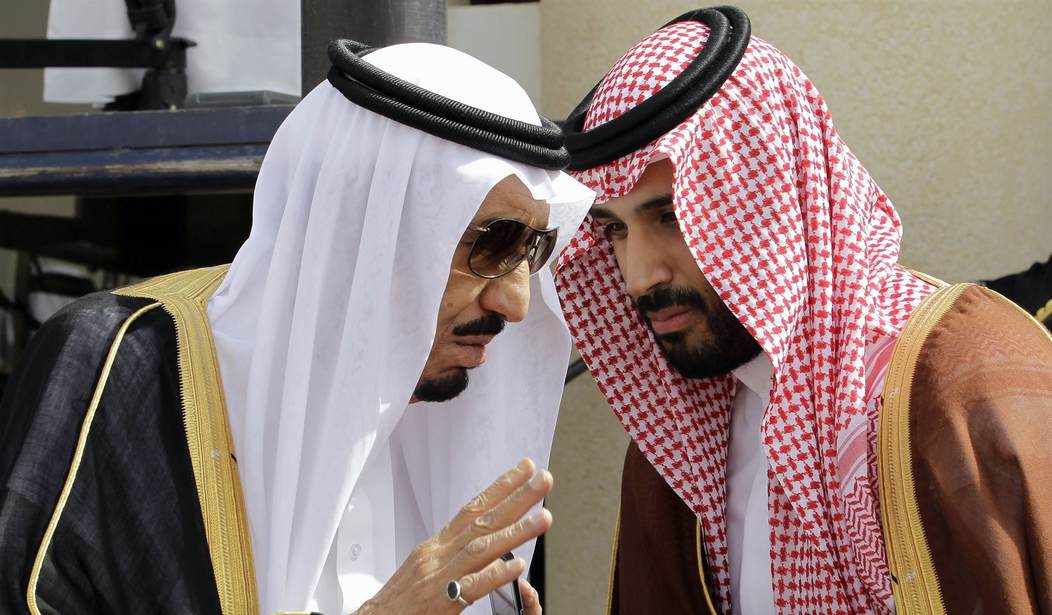If the Arab Spring taught us anything, it is that populist forces once unleashed can lead to widespread disruption and destruction. Egypt, Libya, Syria, Yemen, Bahrain have all suffered to varying degrees from the chaos when revolution from below meets resistance from above and foreign powers exploit the conflicts for their own purposes.
Although democratic purists may decry the narrowing space for civic discourse and political participation in many countries around the world, the events of this decade demonstrate that reform from the top down can be preferable to change from the bottom up. Saudi Arabia, for example, has taken this lesson to heart. King Salman and his son Crown Prince Mohamed are taking a controversial path to catapulting their country into the future. Armchair punditry has criticized Saudi Arabia’s leadership for its crackdown on dissent and arrests of high-profile members of the royal family and business tycoons.
Yet contemporary history is replete with examples of “revolution from above” that produced profound, positive, stable and sustainable change. Authoritarian socioeconomic development was the model pursued successfully by both Japan and South Korea. As pointed out by Ali Shihabi, Executive Director of the Arabia Foundation, the rulers of China and Dubai have also effectively tackled their society’s social and economic challenges with a combination of selective coercion, institutional reform and economic incentives.
Another example of a work still in progress is Kazakhstan. President Nazarbayev, Kazakhstan’s “Leader of the Nation,” has ruled the country since independence in 1991. He was re-elected in 2015 with 98 percent of the vote. Despite regular criticism of the regime’s authoritarian tendencies, it has chosen to pursue a policy of top-down reform in which intra-elite deliberations and state-led implementation are the preferred mechanisms for economic, political and social development.
Recommended
This approach has produced impressive results. Rates of GDP growth, foreign direct investment, education, employment and per capita gross national income are consistently strong. Kazakhstan ranks in the top 40 percent of international indexes for economic freedom, global competitiveness, ease of doing business, global entrepreneurship and human development.
Fighting corruption and empowering women are among the toughest issues confronting emerging market states. Taking meaningful action in response to citizens’ demands for fairness and equality requires strong and determined leadership. 10,000 Kazakh civil servants have been prosecuted for corruption since 2001. According to Kazakhstan’s Academy of Public Administration, the number of individuals prosecuted for mediating a bribe increased by 200 percent in the period 2012-2015. The number of individuals prosecuted for offering bribes increased by 226 percent in the same time span, while the number of individuals prosecuted for accepting a bribe increased by 132 percent.
Transparency International’s 2016 Corruption Perceptions Index (CPI) improved Kazakhstan’s ranking from 135th to 131st of the 176 nations surveyed. In commenting on this indicator, the Vice Dean of Nazarbayev University’s Graduate School of Public Policy noted: “One of the key messages that Transparency International highlighted … was that the number of countries in which corruption had increased from 2015 to 2016 exceeded the number of countries in which the level of corruption had instead declined. Nonetheless, this small improvement in the CPI score represents a step in the right direction. It means that Kazakhstan is doing the right thing and that the international community is taking notice that Kazakhstan is on the right track.”
Kazakhstan’s efforts to promote women’s equality have demonstrated similar progress. According to Secretary of State and former Deputy Prime Minister Gulshara Abdyalykova, women contribute 40 percent of GDP and make up 52 percent of those engaged in small to medium enterprises. Save the Children’s 2016 Girls’ Opportunity Index, ranked Kazakhstan 30 out of 144 countries – ahead of the United States - due to the relatively high rates of women in Parliament and low rates of adolescent fertility and maternal mortality. Women hold twenty percent of Kazakhstan’s Parliamentary seats and ministerial positions, a proportion similar to many European countries. The World Economic Forum’s Global Gender Gap Index places Kazakhstan 43rd out of 142 countries surveyed.
Liberal Western democracies are admittedly a standard to which to aspire, but they should not be the primary criteria by which we judge other nations. Countries do not become modern overnight. It took America almost 100 years to abolish slavery, 150 years to grant women the right to vote and 200 years to pass the Civil Rights Act. And we still have not come to terms with the legacy of the Civil War, in which three-quarters of a million of our citizens were killed by their own countrymen.
The United States is well-served by allies who demonstrate a commitment to being responsible international stakeholders, to upholding the rule of law and to working with us in pursuit of a more equitable world order. By these measures, Saudi Arabia, and Kazakhstan, or Iraq and Afghanistan for that matter, should be commended and supported as they forge their unique and authentic futures.
























Join the conversation as a VIP Member